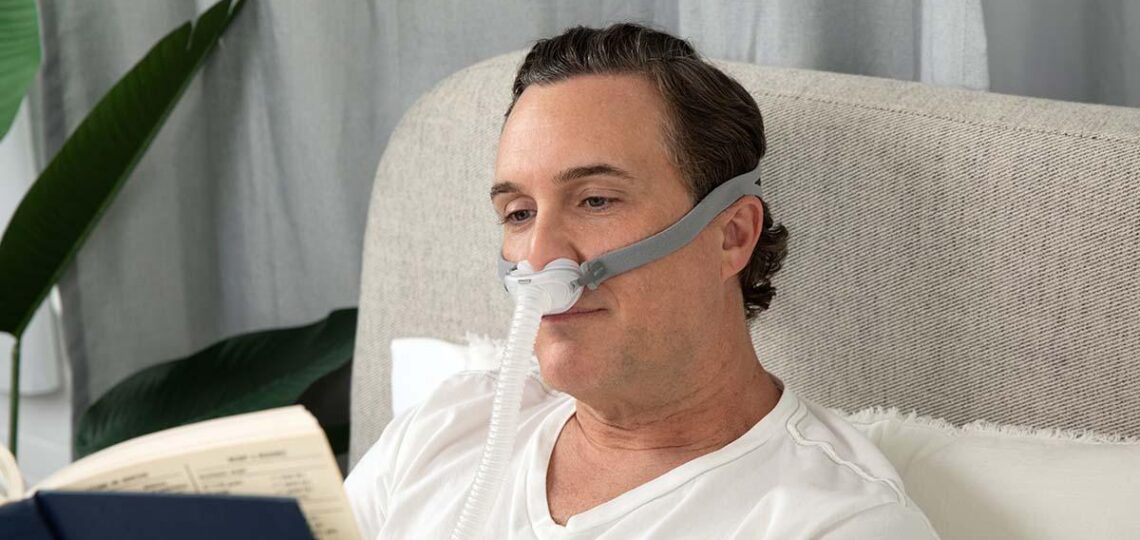
Perth Home Sleep Studies: Convenient Testing for Busy Lives
Sleep disorders affect millions of Australians, yet many individuals delay seeking diagnosis due to the perceived inconvenience of traditional sleep studies. However, Perth home sleep studies offer a practical solution for busy professionals, parents, and individuals who find it challenging to schedule overnight hospital stays.
These diagnostic tests allow patients to undergo comprehensive sleep assessments in the comfort of their own beds. The testing equipment is portable, user-friendly, and provides accurate data about breathing patterns, oxygen levels, and sleep quality throughout the night.
The accessibility of home sleep studies has transformed the landscape of sleep disorder diagnosis in Perth. Patients can maintain their regular routines while collecting valuable medical data. This approach proves particularly beneficial for:
- Working professionals with demanding schedules
- Parents with childcare responsibilities
- Individuals with mobility challenges
- People living in remote areas
The rise of home-based sleep testing reflects a broader shift towards patient-centred healthcare delivery, recognising the need to adapt medical services to modern lifestyles without compromising diagnostic accuracy. This trend is not limited to Perth; similar home sleep study solutions are also available in Brisbane, Melbourne, and Sydney.

Understanding Home Sleep Studies
Home sleep studies represent a modern approach to diagnosing sleep disorders through portable monitoring devices patients can use in their own bedrooms. These diagnostic tests capture essential sleep data without requiring an overnight stay in a sleep laboratory.
Perth home sleep study are a significant advancement in diagnosing sleep disorders, combining clinical accuracy with the demands of modern lifestyles. These accessible diagnostic solutions allow individuals to undergo comprehensive sleep assessments without disrupting their daily routines.
Home vs Laboratory Testing Differences:
- Testing environment: familiar home setting vs clinical sleep lab
- Equipment complexity: simplified portable devices vs comprehensive lab equipment
- Staff involvement: self-administered vs technician-monitored
- Duration: single night vs potential multiple night studies
The most common type of home sleep study utilises Level 3 screening devices – compact units designed for comprehensive respiratory monitoring. These sophisticated instruments track multiple parameters throughout the night:
Key Measurements:
- Airflow through the nose and mouth
- Chest and abdominal breathing movements
- Blood oxygen saturation levels
- Heart rate and pulse
- Body position and movement
- Snoring intensity
The portable monitoring device consists of several sensors attached to specific body areas. A small recording unit stores all collected data for analysis by qualified sleep physicians. This technology enables accurate diagnosis of sleep-disordered breathing, particularly obstructive sleep apnea, while maintaining patient comfort and convenience.
Level 3 devices strike an optimal balance between diagnostic capability and ease of use, making them suitable for initial sleep assessments. These units provide detailed respiratory data essential for identifying sleep-breathing disorders without the complexity of full laboratory polysomnography equipment.
If you’re considering a home sleep study, there are various options available such as those offered in Hobart, Adelaide, or Canberra. Each location provides tailored services to ensure accurate diagnosis and treatment of your sleep disorders.
The Patient Pathway for Sleep Disorder Diagnosis in Perth
The diagnostic journey for sleep disorders in Perth follows a structured pathway designed to ensure accurate diagnosis and appropriate treatment planning.
Learn more on: Cost of Sleep Apnea Testing in Perth
1. Initial GP Consultation
During the first step, patients consult their General Practitioner (GP) who will:
- Assess their medical history
- Have them complete a sleep questionnaire
- Refer them to a sleep services provider if necessary
2. Sleep Provider Assessment
Once referred, the sleep services provider will conduct an assessment which includes:
- Evaluating any potential risks related to the patient’s sleep disorder
- Scheduling an appointment for device allocation (if applicable)
- Providing technical instructions on how to use the device during home testing

3. Home Testing Process
Patients will then go through a home testing process where they will:
- Collect the device from a designated centre
- Record their sleep patterns for one to two nights using the device
- Self-apply sensors as per the provided instructions
- Return the device the next day after completing the testing period
4. Professional Analysis
After receiving the recorded data, qualified sleep physicians will perform a thorough analysis which involves:
- Downloading and verifying the data collected from the home testing
- Reviewing the findings with a sleep physician
- Preparing a comprehensive diagnostic report based on the analysis
- Making treatment recommendations tailored to each patient’s needs
The collected data undergoes thorough analysis by qualified sleep physicians who assess breathing patterns, oxygen levels, and other vital parameters. Based on these results, patients receive personalised treatment plans, which may include CPAP therapy initiation. Read more about oxygen on https://ugc.berkeley.edu/background-content/oxygen-levels/
For patients requiring CPAP therapy, the transition from diagnosis to treatment occurs seamlessly within the same healthcare provider network. This integrated approach allows for:
- Immediate therapy initiation post-diagnosis
- Equipment selection and fitting
- Practical usage demonstration
- Regular progress monitoring
Air Liquide Healthcare’s network of sleep clinics across Perth facilitates this comprehensive diagnostic pathway, ensuring patients receive consistent care from initial consultation through to ongoing treatment management.
Benefits of Home Sleep Studies for Busy Individuals
Home sleep studies offer significant advantages for individuals managing demanding schedules and professional commitments in Perth. The elimination of overnight hospital stays removes a major barrier to sleep disorder diagnosis, allowing patients to maintain their regular routines without disruption.
More Accurate Results
Testing in a familiar environment produces more accurate results, as patients sleep in their own beds under normal conditions. This natural setting helps capture authentic sleep patterns and breathing behaviours compared to the artificial environment of a sleep laboratory. Research indicates that patients often experience better quality sleep at home, leading to more representative diagnostic data.
Empowering Patients with Flexibility
The flexibility of home testing empowers patients to choose optimal timing for their sleep studies:
- Schedule testing on preferred nights
- Maintain regular bedtime routines
- Continue caring for family responsibilities
- Avoid taking time off work
- Complete testing without travel requirements
Accommodating Various Lifestyles
Home sleep studies accommodate various lifestyle factors:
- Night shift workers can test during their normal sleep hours
- Parents can remain available for children’s needs
- Individuals with mobility challenges avoid hospital transport
- Business professionals maintain work commitments
Convenient Testing Process
The convenience extends to the testing process itself, with minimal setup requirements and user-friendly equipment designed for self-administration. Modern portable devices are compact and non-intrusive, allowing natural movement during sleep while collecting essential diagnostic data. To read more about movement click here.
Clinical Focus: Detecting Obstructive Sleep Apnea (OSA)
Obstructive Sleep Apnea occurs when the throat muscles intermittently relax during sleep, blocking the airway and causing breathing interruptions. These interruptions can happen multiple times per hour, with each episode lasting from a few seconds to minutes.
Key Health Impacts of OSA:
- Cardiovascular complications (high blood pressure, irregular heartbeat)
- Increased risk of type 2 diabetes
- Higher likelihood of stroke
- Memory and concentration problems
- Depression and mood changes
Untreated OSA creates significant health and safety risks. People with OSA experience excessive daytime sleepiness, leading to:
- Reduced workplace productivity
- Increased risk of motor vehicle accidents
- Higher rates of workplace incidents
- Impaired decision-making abilities
Home sleep studies play a crucial role in early OSA detection by monitoring:
- Breathing patterns and interruptions
- Blood oxygen levels
- Heart rate variations
- Body position changes
These measurements enable sleep physicians to assess OSA severity and develop personalised treatment plans. Early identification through home sleep studies helps prevent the progression of associated health conditions and reduces the risk of complications.
The convenience of home testing removes barriers to diagnosis, allowing individuals to seek treatment before symptoms worsen. This proactive approach to OSA management supports better health outcomes and quality of life improvements.
Limitations and Suitability of Home Sleep Studies
Home sleep studies, while convenient and effective for many patients, have specific limitations compared to comprehensive in-laboratory polysomnography testing. The primary difference is that home studies do not include electroencephalogram (EEG) monitoring, which measures brain wave activity during sleep. This means that certain sleep disorders such as periodic limb movements or complex sleep behaviours cannot be detected by home studies.
When are Home Sleep Studies Suitable?
Level 3 home screening devices focus on respiratory parameters, making them most suitable for patients with:
- Moderate to high risk of OSA
- No significant cardiac conditions
- No other suspected sleep disorders
- Ability to operate the testing equipment independently
When are In-Laboratory Polysomnography Studies Necessary?
In-laboratory polysomnography becomes necessary for patients with:
- Complex medical histories
- Suspected central sleep apnoea
- Multiple sleep disorder symptoms
- Physical limitations affecting device operation
- Previous inconclusive home sleep study results
The decision between home testing and in-lab studies requires careful consideration of individual circumstances. Sleep physicians assess factors including medical history, physical examination results, and specific sleep-related symptoms to determine the most appropriate testing method.
Patients with severe obesity, significant lung disease, or neuromuscular conditions typically benefit from full in-laboratory studies due to the comprehensive monitoring capabilities and immediate technical support available.
Medicare Coverage and Costs of Home Sleep Studies in Perth
Medicare provides rebates for home sleep studies when specific eligibility criteria are met under the Medicare Benefits Schedule (MBS). Patients must receive a referral from a qualified medical practitioner who has identified symptoms of sleep disorders through clinical assessment.
Medicare Eligibility Requirements:
- Documented relevant symptoms of sleep disorders
- High pre-test probability of OSA diagnosis
- Professional assessment by referring practitioner
- No contraindications for home-based testing
The cost of home sleep studies in Perth ranges from $170 to $300+ AUD, depending on the service provider and specific testing requirements. With a valid Medicare card, eligible patients can claim a rebate, reducing out-of-pocket expenses.
Cost Breakdown:
- Initial consultation: $80-120
- Home sleep study: $170-300
- Medicare rebate: Approximately 75% of scheduled fee
- Additional costs may apply for equipment delivery
Private health insurance policies might offer additional coverage for sleep studies, though benefits vary between insurers and specific policy levels.
Ongoing Support and Treatment After Diagnosis
After a sleep disorder is diagnosed, ongoing care is essential for effective management. Air Liquide Healthcare offers tailored CPAP therapy programs in Perth, designed to meet the unique needs of each patient. These programs include:
- Setting up the equipment and fitting the mask
- Demonstrating how to use the device
- Adjusting pressure settings based on individual requirements
- Providing guidance on sleep positions for better therapy outcomes
Patients also receive dedicated support through:
- A 24/7 helpline for technical assistance
- Regular appointments to monitor progress
- Analyzing data to assess therapy effectiveness
- Conducting maintenance checks on the equipment
The support structure includes scheduled follow-up consultations at important milestones:
- Week 1: Assessing initial adaptation to therapy
- Month 1: Reviewing usage patterns
- Month 3: Evaluating overall progress
- Month 6: Checking long-term effectiveness
Air Liquide Healthcare’s sleep specialists keep detailed records of therapy sessions, tracking improvements in sleep quality and addressing any potential challenges. This systematic approach ensures patients get the most out of their CPAP therapy while staying comfortable and compliant with treatment protocols.
Leading Providers Facilitating Home Sleep Studies in Perth
Air Liquide Healthcare Sleep Solutions is Australia’s largest provider of home sleep studies, operating in the Perth metropolitan area through several specialised sleep brands. Their integrated service model includes:
- SNORE Australia
- Healthy Sleep Solutions
- Mycroft
- Complete Care
- Sleep Disorder Australia (SDCA)
This extensive network allows for wide coverage across Perth, making sleep diagnostic services more accessible to patients. Air Liquide Healthcare’s partnerships with top CPAP equipment manufacturers ensure that patients have access to the latest sleep therapy technology.
The organisation’s dedicated sleep specialists work closely with local sleep physicians to provide:
- Diagnostic assessments
- Treatment planning
- Equipment provision
- Clinical monitoring
- Medicare-compliant services
Air Liquide Healthcare’s established presence in Perth creates a strong support system for patients throughout their sleep health journey, from initial diagnosis to long-term therapy management.
Conclusion
The combination of advanced portable monitoring devices, qualified sleep physician oversight, and integrated treatment pathways ensures patients receive high-quality care from initial testing through to ongoing management. This patient-centred approach to sleep disorder diagnosis demonstrates how healthcare services adapt to meet the needs of busy individuals while maintaining rigorous clinical standards.
